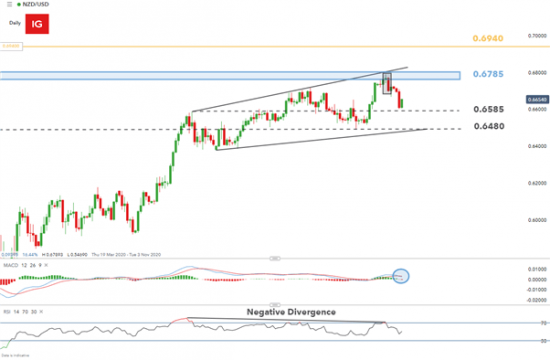 The sharp fall in technology stocks in the US has resulted in a correction of over 5 per cent even in the DJI index over the last three trading sessions. (AP)
The sharp fall in technology stocks in the US has resulted in a correction of over 5 per cent even in the DJI index over the last three trading sessions. (AP)
Over the last three trading sessions, Nasdaq Composite in the US has declined 10 per cent in line with sharp correction in stock prices of technology giants including Apple, Amazon, Facebook, Nvidia, Tesla, Netflix and Zoom Video Communications among others. The sharp decline in technology stocks, that include some of the biggest companies in world, had a ripple effect on global markets too and has kept the markets in Asia and Europe under stress over the last week. While the fall has been sharp, it is in line with expectations of corrections following concerns over high valuations that they were trading on.
The rise before the fall
Before the fall it is important to see and understand the rise in markets. As the Central Banks around the world came out with their liquidity enhancing measures to support their respective economies from the duress caused by the Covid-19 pandemic and imposition of lockdowns, the markets became flush with liquidity.
The huge surplus liquidity found its way into the stock markets (following the correction in February and March) with large investors pumping big money into large companies. As the share prices rose, it attracted smaller retail investors too into the markets leading to further gains. The biggest beneficiaries were the technology giants listed on Nasdaq in the US as many of them were seen to be consolidating their business during the lockdown and many felt that they would come out stronger post the pandemic.
In the period between April 1 and September 1 Nasdaq rose 62 per cent. During this five-month period Apple Inc saw its share price rise by 124 per cent and Facebook and Amazon Inc saw their share prices rise by 85% and 83% respectively. Tesla and Nvidia saw big gains of 393% and 127% respectively in their share prices during the period and even Netflix and Alphabet (parent of Google) rose 53% and 50% respectively.
The rally and the fall was been more pronounced in technology companies, as Down Jones Industrial Average (index of broader set of companies in the US) has been relatively stable.

Against the Nasdaq Composite’s (technology index) gain of 62%, the Dow Jones Industrial (30-stock index that includes companies from various sectors) rose 37%. Similarly, while Nasdaq lost 10% over the last three days, DJI index fell 5.5 per cent.
? Express Explained is now on Telegram. Click here to join our channel (@ieexplained) and stay updated with the latest
Why are they falling now?
There has been a bloodbath in Nasdaq over the last three trading sessions with Nasdaq Composite falling 10 per cent in three trading sessions after closing at a high of 12,056 on Thursday, September 2, 2020. During these three trading sessions Apple shares lost 14% and Amazon fell 11%. Among the big losers have been Tesla at -26.2%, Zoom Video and Nvidia both losing 17% each. Alphabet and Facebook also lost 11.3% and 10.2%, respectively. In fact, on Tuesday, Tesla shares fell 21% and that of Apple and Nvidia fell 6.7% and 5.7%, respectively.
If expensive valuation was a growing concern in the market, the fact that the sharp rally in a number of these stocks moved their prices much ahead of the fundamentals or the economic realities amidst the Covid-19 pandemic, started bothering a number of investors. Further, reports of some large investors like Softbank buying large quantities of options of these technology companies also came as a concern among investors.
So, when concerns on valuations started pouring in from all corners, a correction became imminent.
ALSO EXPLAINED | Forex reserves at all-time high — why did this happen, and what does it mean for India’s economy?
“The current correction playing out in the US stocks, especially in the technology pocket, is very much on expected lines. The US markets have been on a surge on account of the developed world central bank unleashed bull market, supported by record low interest rate with hardly any alternative. The US market valuation was at all-time highs and the market to GDP had crossed all the peaks thus far. All of these factors were indicating towards a possible correction in the near term. As a result, we have been cautious on US equities and have been communicating the same,” said S Naren, ED & CIO, ICICI Prudential Mutual Fund.
There are some who say that while speculative buying of call options worth $40 billion by Softbank helped the rally, “The unwinding of the same may be leading to the fall now,” said a leading market expert.
Sandip Agarwal of Edelweiss Securities said a reason for the sharp correction now is the “insane rise over the last month or so and some of them announcing stock split, that added to their rise.” Stating that the passing of those events have also led to the fall, he said that there may be more decline in Nasdaq going forward.
Can it fall further?
As the concerns surrounding expensive valuations of these technology companies still remain, market participants say there may be further correction in their prices and in premier indices. Experts say while the 5-6 technology companies that led the rally and are now leading the correction have a strong business model in the long term, the sharp rally in their share prices over the last 4-5 months have taken them much ahead of their current justifiable valuations and hence they may see a correction.
Stating that the fundamentals remain intact for these technology giants and that they are likely to post good results for the September quarter, Agarwal said “there may be another 10% correction in Nasdaq. While there is no tech bubble, there may be bubble in a couple of stocks.”
What it means for India ?
A rise or fall in the US markets typically results in a rise/ decline in the stock markets worldwide because of the presence of US-based institutional investors in stock markets worldwide and the influence of liquidity in US over world markets. It is important to note that the surge in liquidity in the US also played a role in the rise in Indian stock markets over the last five months.
DON’T MISS FROM EXPLAINED | How did MacKenzie Scott become the richest woman in the world?
The fall in US markets over the last three trading sessions put pressure on Indian markets too and the benchmark Sensex at BSE lost 893 points or 2.3 per cent over the last five days. The concern in the markets is that if the decline in the US markets spreads beyond the technology stocks, then it may lead to deeper impact in Indian markets.
Raamdeo Agrawal, Jt MD, Motilal Oswal Financial Services said while excessive speculation led to the sharp rise, “The markets are likely to remain volatile in the foreseeable future and that would hurt the markets worldwide including the Indian market.” He said the US election is a big event ahead including the ongoing wait for a Covid-19 vaccine.
Even others agree. Naren said, “Owing to the developments in US equities, Indian equities may remain volatile in the near term. So, an investor looking to make investments currently can consider dynamically managed asset allocation schemes, value oriented, divided yield, special situations, focused fund with a value orientation to make the most of the evolving opportunities.”
? The Indian Express is now on Telegram. Click here to join our channel (@indianexpress) and stay updated with the latest headlines
For all the latest Explained News, download Indian Express App.











